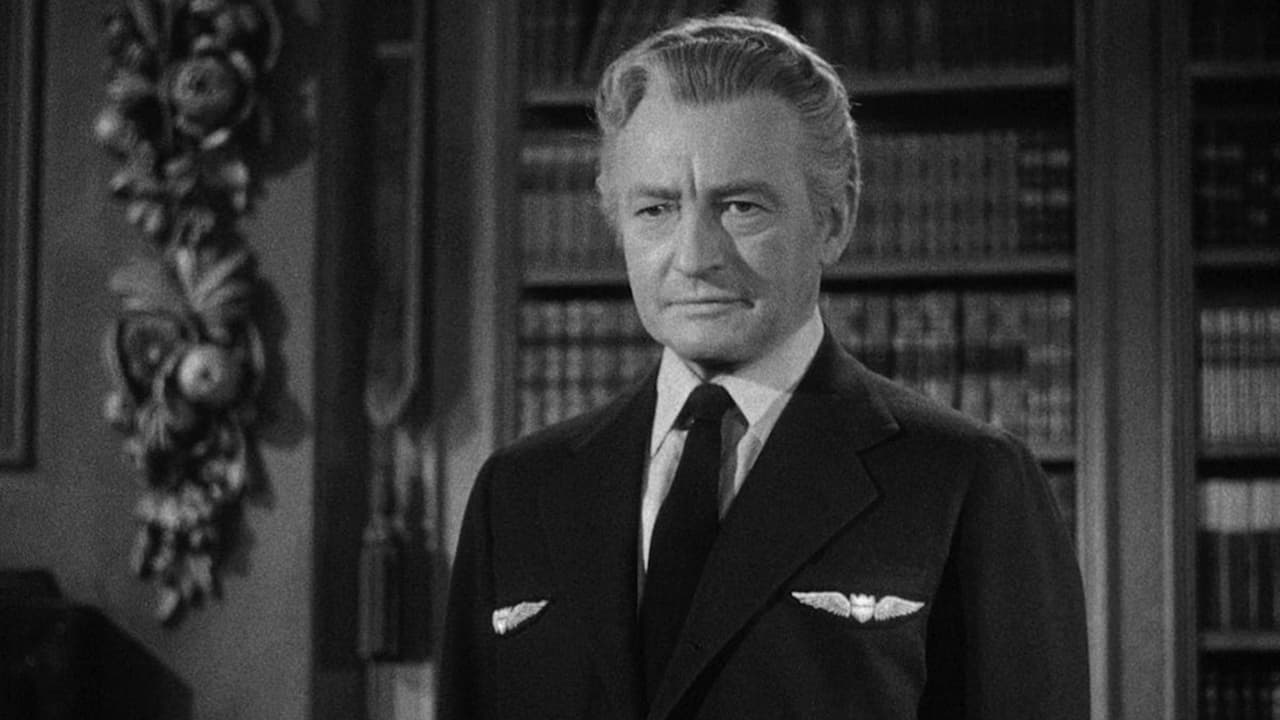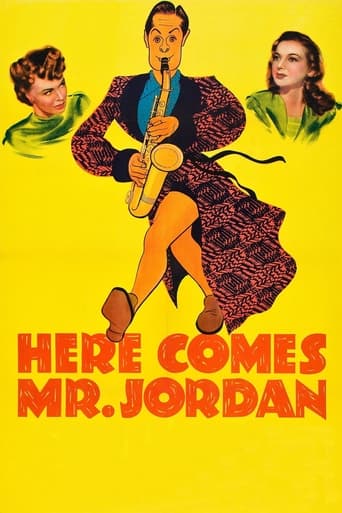

one of films who you do not can ignore. or forgettable. or not see again. maybe, because it is expression of a comfortable drawing of comfortable and innocence explore of life.or because it gives all - romance, humor, tension, air of fairy tale, moral values in coherent lessons, the good guy in strange situations, crumbs of spirituality. so, one of the seductive films who remain, after few decades, fresh. and refreshing. and one of the most important pillars is the great performance of Robert Montgomery who reminds the unique flavor of old golds films from "30 - "40's who gives the irresistible mark to many films from the same period. in few words, a great show. that is all.
... View MoreEven today, 70+ years after this film was made, with this reviewer (having seen it maybe a dozen time) now in his dotage, I will still occasionally bump into another cinephile, no matter male or female, who will recall this film for that one unforgettable scene where Montgomery's character, Joe Pendelton, finally gets a replacement body that suits him, and his angel (played by Claude Rains) gives him a merry sendoff by removing the memory of everything that happened in the film before that. To balance the cosmos, so to speak. Unfortunately, this also removed his memory of a girl he'd met in an earlier body (one that did not work out) so it seems that now, the course of true love is thwarted. But is it? In a long corridor inside the stadium where Montgomery's character, in his last (and final) body, has just finished a prize fight, as Montgomery passes by the girl he once was in love with (ie, in another body before his memory was diddled with); and the girl, convinced the man she'd loved (ie, Montgomery in an earlier body) was dead, passes him going the other way. Of course she does not recognize him (new body, new name); and he does not recognize her (aforesaid angelic diddling). But as they pass as strangers, the lights in the corridor momentarily go out. And when the lights come back on, each stops, aware that just for a moment, in the dark, they recognized something about the other that was not obvious to the eye. And then the girl suggests that maybe they should go have a coffee and talk about the experience. And I swear I get misty-eyed just writing about this scene, that's how powerful it is, and I promise you that none of the 700 remakes has captured it properly. In fact, the tears are welling up so fast I am going to have to go out and shoot a deer just to remind myself what a manly man I am. Oh, in case I forgot, superb film, superb performances, based on a brilliant stage play, Claude Rains riding shotgun, mesmerizing and unforgettable. There, I think I covered all the bases. Actually deserves a 20 and I mean to talk to the IMDb about making a special rating system for this film. They listen to me, they really do...
... View MoreHere Comes Mr. Jordan is directed by Alexander Hall and adapted from Harry Segall's play by Sidney Buchman & Seton Miller. It stars Robert Montgomery, Evelyn Keyes, Claude Rains, Rita Johnson, Edward Everett Horton and James Gleason. Photography is by Joseph Walker and Friedrich Hollaender scores the music. Plot sees Montgomery as boxer Joe Pendleton, who during a journey in a small plane finds himself crashing towards the earth but then suddenly finds that he is in heaven. Turns out that his soul was saved before the crash impact by angel 7013 (Horton) who assumed that he wouldn't have survived the crash. Bad call, tho, because it wasn't Pendleton's time, he's not due to die for another 50 years! So superior angel Mr. Jordan (Rains) escorts him back to Earth, but the trouble is is that Joe's body has been cremated by his boxing manager Max (Gleason), so the search is on for a new body for Joe to exist in. First stop; a murder victim!Fun and appealing comedy that offers up dry observations on the afterlife and keeps its romantic plot strand on the warm side of the bed. It's that the makers can marry up the comedy to the romance so well that makes the film so utterly beguiling. The characters are easily to warm too, so as the plot delightfully twists and turns, we are happy to run with them into each well written corner. The film is also very well casted, with Montgomery bullish without over doing it, and Rains elegant and enjoying his role. But the joys come in the support cast with Horton all prissy as the over zealous 7013 and Gleason playing it spot on as the bemused and incredulous manager. Bonus, too, is that the ending offers up a two fold resolution that shows a better hand than many other comedies of the era.Uncynical if a touch routine, Here Comes Mr. Jordan is heartily recommended fare to the classic comedy seeker. 7.5/10
... View MoreBoxer Joe Pendleton is days away from his championship bout when his private plane goes down and the agents of death take him away to heaven. Unfortunately for Joe, the agent acted too fast and, had he waited he would have seen Joe recover the crashing aircraft and make it away safely. Problem is in the time taken to sort this out (which has involved top agent Mr Jordan), Joe's earthly remains have been cremated with no chance of him just being returned to his body. So begins a search for another body for Joe, a search that ultimately leads to millionaire Farnsworth who has just been murdered by his wife and her lover.Looking at the basic plot (and even the detail of the ending) it does strike me as rather amazing that this did get made as a studio picture because it does have a dark streak to it that could easily have undercut any comedy, whimsy or romance and alienated the audience. Watching it again recently it does still surprise me that it pulls it off but somehow it is light, funny and with plenty of charm and somehow even the rather ambiguous ending comes off as lifting and happy. A big part of this for me is the cast because they get the delivery just right in particular Robert Montgomery. Some have said that Rains dominates his scenes but I totally disagree, Montgomery owns the film because the tough but kind nature of his character is the engine that drives it to success. He is note perfect and his performance kept me with the tone of the film. Rains is nearly as good but is more of a cool presence in each scene.Hall's direction holds it together and makes the tone so that we never lose the slight hint of darkness but prevents it ever getting in the way of the comedy and fantasy of the piece. Here Comes Mr Jordan has been remade several times recently and you can see why because this original is charming and fresh with solid comedy and whimsy held together by a couple of great performances.
... View More